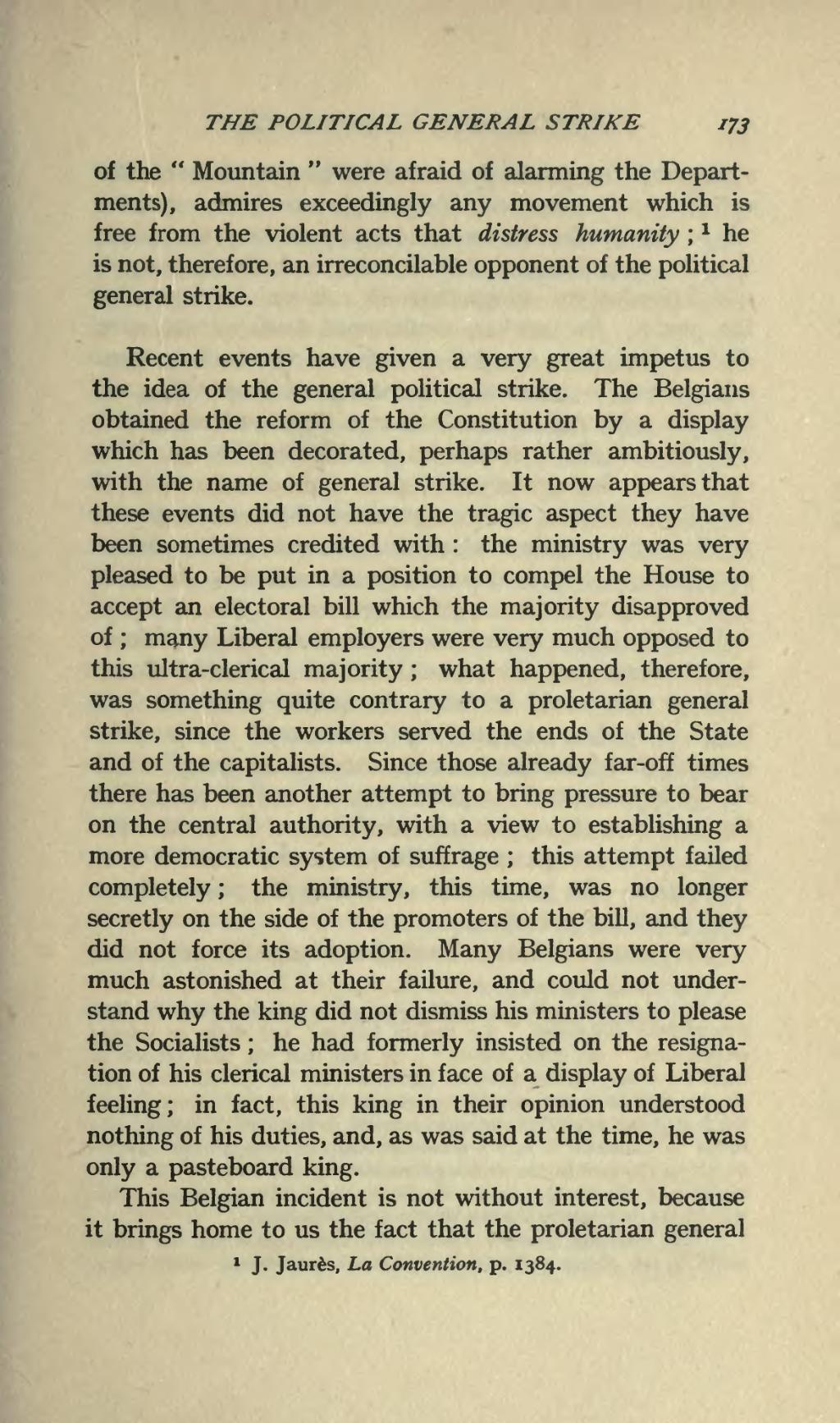of the "Mountain" were afraid of alarming the Departments), admires exceedingly any movement which is free from the violent acts that distress humanity;[1] he is not, therefore, an irreconcilable opponent of the political general strike.
Recent events have given a very great impetus to the idea of the general political strike. The Belgians obtained the reform of the Constitution by a display which has been decorated, perhaps rather ambitiously, with the name of general strike. It now appears that these events did not have the tragic aspect they have been sometimes credited with: the ministry was very pleased to be put in a position to compel the House to accept an electoral bill which the majority disapproved of; many Liberal employers were very much opposed to this ultra-clerical majority; what happened, therefore, was something quite contrary to a proletarian general strike, since the workers served the ends of the State and of the capitalists. Since those already far-off times there has been another attempt to bring pressure to bear on the central authority, with a view to establishing a more democratic system of suffrage; this attempt failed completely; the ministry, this time, was no longer secretly on the side of the promoters of the bill, and they did not force its adoption. Many Belgians were very much astonished at their failure, and could not understand why the king did not dismiss his ministers to please the Socialists; he had formerly insisted on the resignation of his clerical ministers in face of a display of Liberal feeling; in fact, this king in their opinion understood nothing of his duties, and, as was said at the time, he was only a pasteboard king.
This Belgian incident is not without interest, because it brings home to us the fact that the proletarian general
- ↑ J. Jaurès, La Convention, p. 1384.
